BATTLE with CHRONIC PAIN | Overcoming Narcotic Dependency
Explore the intersection of chronic pain, mindfulness, and self-discovery in this thought-provoking podcast. Don Hunter, a psychotherapist with 40 years of experience, shares his personal story, emphasizing the importance of acceptance, meditation, and breaking free from the cycle of suffering.
Purchase Don’s Book “Chronic Pain” My Journey Here - https://bit.ly/3r90nP0
🔗FOLLOW
▶Web - https://startswithme.ca
▶YouTube - https://goo.gl/P4L9hH
🎧 PODCAST
▶ Apple - https://goo.gl/tkZKgh
▶ Spotify - https://goo.gl/iabccZ
▶ Amazon - https://amzn.to/3uHiFFG
▶ Web - https://startswithme.ca/mentalhealthpodcast/
And in the book you really detail a lot of it in the whole process, which is pretty intense. To hear about it, I guess, for lack of a better description. And here I just want to read what you write, because this is obviously well, not obviously, but there's a lot of people in this situation right now as we speak and who are probably grappling with all these kind of things.
And I think hearing people like yourself talk about it is so useful. So I'm just going to read a bit pointing to what you were just saying. Eventually, it became clear that I was dependent on the narcotics for pain relief and that I was not chasing any high from the medications. The quote unquote, experts had convinced me that the body uses the narcotics to treat the pain, not to get me high.
There was always a large quantity of narcotic medications within reach on my bedside table, but I was usually able to resist the temptation to take more than was prescribed. I believed I was, quote unquote, dependent, not addicted, a solid rationalization. I manipulated my use of the medications by adding heat to the fentanyl patches during the last few hours before I could put a new patch on.
I would also split up the dose of try as I am to see if it would keep the pain under seven out of ten. This manipulation seemed to be helpful as it was administering the medication differently, but this beneficial effect also wore off with time, like everything else. And I love that you use the word rationalization because in in the 12 step addiction world, they often, they say, rationalize as justify, minimize.
And I know it's a little bit different in this context, but the way the mind thinks in that way is very similar. Well, yeah, you that's so how does anything. Right right, right. Okay. And so how did you that's the next part in the book. Here's the detox. Right. And that draw the climbing out. How did you get from that to I guess you said you had a specialist suggesting you go off the narcotics and everything.
And how did that decision come about? And can you just talk to people about the detox and the withdrawal and how you manage that? Yeah, it was well, it was it was difficult to come down and make that decision. But like I said, it took me a couple of years to come to the realization that I actually did have to do that.
So once I made that decision, I had two close friends Judy and Client who were both in addictions and said, look, go to this guy who's a specialist in addiction. Talk to him, share your story and see what he thinks. And he was the one. He was great. And he was the one who said, you know, you are dependent on the narcotics.
There's no question about it. The addiction issue isn't something that we need to talk about at this point, but you need to get off and the only way to do that is to go to the medical withdrawal unit camp. So he was the one who referred me. And I went in and I was in for seven days.
And it was the first probably the first four days, three days in particular were horrible. I mean, it was a constant sort of nausea, vomiting, everything else. And they will they gave I think for the first three days, I was able to have one out event to try and get the sleep at night. And but by day five, I was starting to feel great.
And it was in the I think it was in May one year 2010 that I sort of was able to go outside and walk around the area outside. So that's where I did most of my meditating, walking meditation and focusing on what was happening and I had all sorts of weird visits from people who were dead, which was interesting.
And I wasn't able to spend the quality of time that I wanted with them. And even when I did, I was still caught by the pain, you know? So we would go, my wife and I would go out for dinner with friends. And after dinner about a half hour after dinner, I was done. And I just go up to a bedroom and lie down, listen to my self instruction or my self-hypnosis tapes and recordings, and try and stay focused on anything that was not the pain.time that this is ruining my life and my relationships and my family.
And the only way out of it is to get off this stuff. And I guess they often say, you know, until we're in enough pain, we won't change. And so that's similar to what I guess you're describing. And it came from the external things, right? The things that matter to you in your life.
-
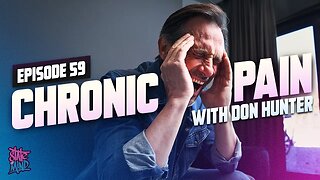 1:14:04
1:14:04
Mind Skills for Well-Being
11 months agoHow to DEAL With the PAIN that NEVER STOPS? | Narcotic Pain Medication Withdrawal & Recovery
24 -
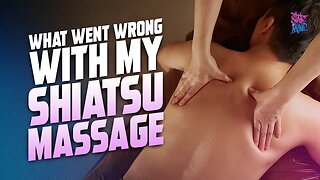 4:03
4:03
Mind Skills for Well-Being
10 months agoThe SECRET to Treat Chronic PAIN?
13 -
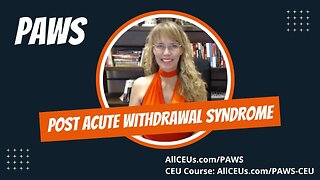 52:56
52:56
DocSnipes
3 years agoPost Acute Withdrawal Syndrome (PAWS) in Addiction Recovery
33 -
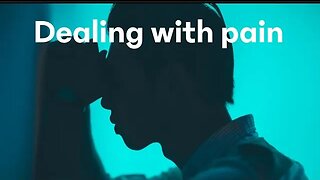 42:43
42:43
TheLifeBoat
1 year agoDEALING WITH PAIN IN SOBRIETY
452 -
 4:57
4:57
Nucleus Medical Media
8 months agoWhat is Fentanyl and How Does it Treat Severe Pain?
267 -
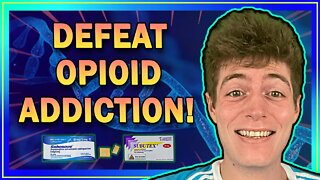 2:51
2:51
Lowkey Fish 🐠
1 year ago𝗕𝘂𝗽𝗿𝗲𝗻𝗼𝗿𝗽𝗵𝗶𝗻𝗲 - Cure Opioid Dependence! (𝗦𝘂𝗯𝘂𝘁𝗲𝘅 & 𝗦𝘂𝗯𝗼𝘅𝗼𝗻𝗲)
2552 -
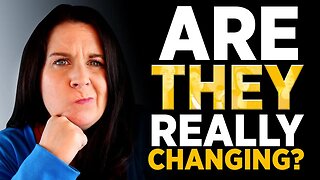 7:45
7:45
Addiction Recovery
4 years agoIs Your Addicted Loved One Making Progress In Recovery?
33 -
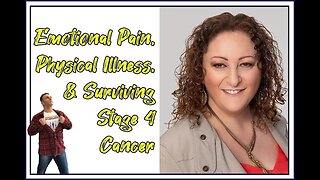 51:44
51:44
Remarkable People Podcast
1 year agoEmotional Pain, Physical Illness, Surviving Stage 4 Cancer, & Showing Up Each Day | Magic Barclay
125 -
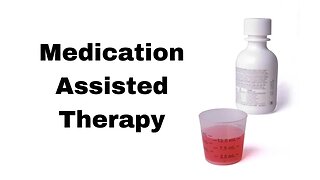 57:21
57:21
DocSnipes
3 years agoMedication Assisted Therapies for Addiction
25 -
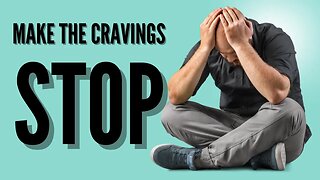 7:14
7:14
Addiction Recovery
1 year agoCould THIS Medication Be The Answer To Addiction!?
43